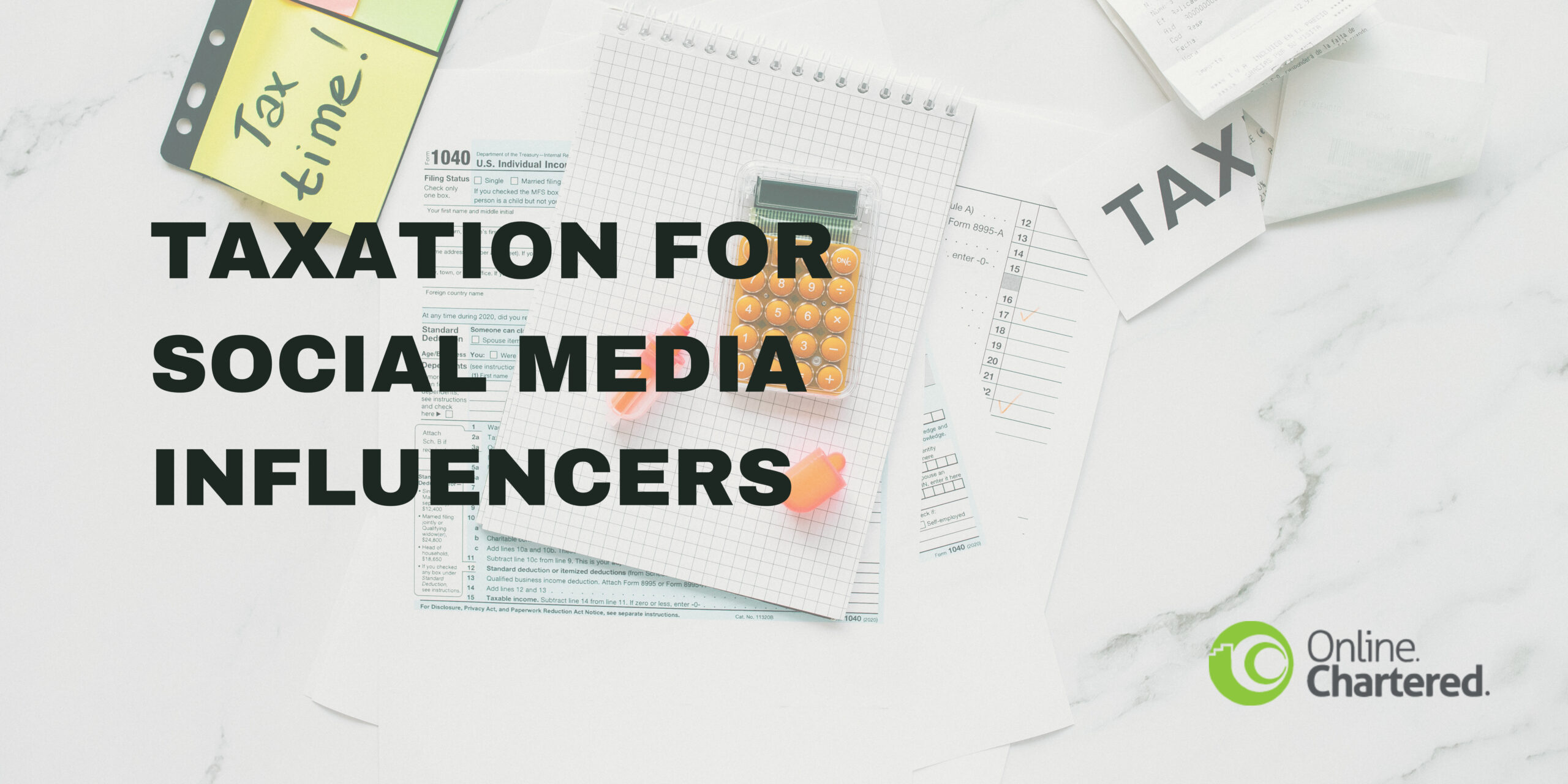Taxation for Influencers

Introduction:
In today’s digital era, influencers have become an integral part of the online landscape, wielding significant influence over their followers and shaping trends across various industries. With the rise of social media platforms and the increasing popularity of content creation, it is essential for influencers to have a comprehensive understanding of Taxation for Influencers to ensure both financial efficiency and compliance with the law. Due to a tax raid that took place on well-known YouTubers in Karela on June 22, this blog is extremely important. The raids took place in various districts, namely Ernakulam, Pathanamthitta, Thrissur, Alappuzha, Kottayam, and Kasargod.
Taxation on Influencers from GST point of view:
Influencers and bloggers who earn more than Rs 20 lakh in a financial year or Rs 10 lakh if they live in a special category state must register their services under the Goods and Services Tax (GST) law. Under GST, services are taxed at the rate of 18%.
Click here for hassle-free GST registration:
Taxation on influencers from the income tax point of view :
The Central Board of Direct Taxes (CBDT) announced that a TDS of 10% will be applied on freebies and incentives valued at more than Rs 30,000 received from businesses for promotions under section 194J of the Income Tax Act, there was no tax on the income of social media influencers.
The tax deducted at source (TDS) is only required to be paid if the product or freebie is kept; if it is returned to the sponsor when the promotional activity is over, no TDS will be assessed. TDS would be applicable to things like automobiles, complimentary tickets, mobile phones, international travel, gadgets, and other benefits offered by the brand.
The sector has embraced the new tax laws for the influencer market. It is believed that every influencer would hesitate before accepting a brand promotion since they will have to pay taxes. As a result, there will be more customer confidence in the interaction between influencers and brands.
Earnings or revenue from influencers will be taxed as “income from business or profession.” The existing slab rates for individual taxes apply to each social media influencer.
A professional book audit is required for an influencer whose firm generates more than Rs 1 crore in income in a fiscal year. The cap is increased to Rs 10 crore if the influencer’s cash component of earnings or payments is less than 5%.
Social media influencers might reduce their taxable income and tax obligation by deducting some business expenditures related to their influencer activity. For instance, the price of shooting equipment like a camera and microphone, the cost of the internet and other forms of communication, the cost of a home office like rent, and the cost of running a business.
Apply here for Income tax filings
Conclusion:
Influencers are considered self-employed individuals and must report their earnings accordingly. They have the advantage of claiming tax deductions for business-related expenses such as equipment, home office costs, marketing, travel, and professional services. Additionally, influencers may need to navigate sales tax obligations based on their location and the nature of their products or services. The recent incident of an income tax raid on social media influencers has changed the scenario for all influencers in India.
